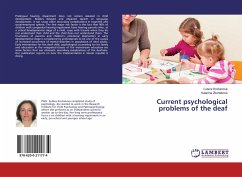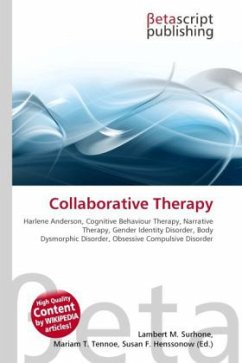Inclusion of learners with diverse needs implies a shift from a medical deficit model to a social systems model. The latter does not view the learner as a problem; instead it considers the environment or society's response to the individual as barriers to learning. This study focuses on collaborative co-teaching as a key to inclusion. Collaborative co-teaching requires the learning support teacher and general education teacher to partner in all aspects of instruction. The outcome of colllaborative co-teching includes effective instruction, a cohesive accepting class community, positive learner development and the professional and personal growth of the learning support teacher and general education teacher. A literature review provided the background to an empirical enquiry using an qualitiative approach.
Bitte wählen Sie Ihr Anliegen aus.
Rechnungen
Retourenschein anfordern
Bestellstatus
Storno








